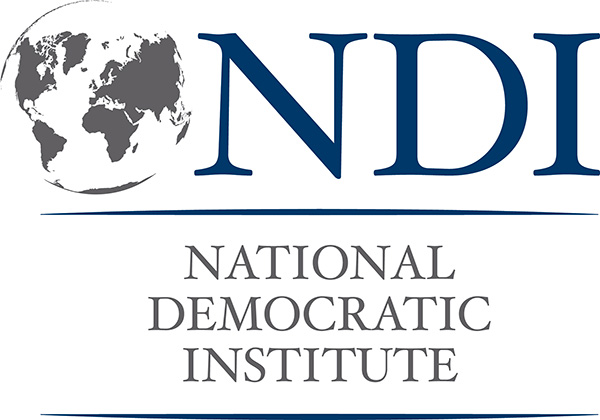civil.ge. National Democratic Institute (NDI) released the second part of the results of its public opinion survey, showing respondents’ attitudes towards broad range of issues, among them party support, trust towards various institutions and assessments of government performance.
The survey was fielded by the Caucasus Resource Research Centers (CRRC) for NDI between July 13 and July 29 with the financial assistance of the UK Aid, and was carried out through nationwide face-to-face interviews (excluding occupied territories) with 2,131 respondents and has an average margin of error plus, minus 1.7%.
- The majority of population (60%) evaluate the current government’s performance as “bad”;
- Of the main public institutions, the Georgian Church continues to enjoy highest trust;
- Most Georgians cannot identify a party that is closest to them;
- 92% of respondents are aware of the June 20 protests and 55% of them place
responsibility for the violence on the government agencies.
According to the survey, the Georgian Dream-Democratic Georgia (GDDG) enjoys the strongest public support with 19% of respondents identifying GDDG as “the party closest” to them against 21% and 27% of respondents in the April 2019 and December 2018 surveys, respectively.
The United National Movement enjoys 9% support (April 2019 – 15%; December 2018 – 12%); followed by European Georgia (April 2019 – 4%, December 2018 – 3%) and Alliance of Patriots (April 2019 – 3%; December 2018 – 3%) with 4% each. 9% of respondents named other parties.
45% of respondents said that none of the parties is closest to them, an eight percent increase compared to the April 2019 survey. 6% of respondents noted that they do not support any party and 4% refused to answer.
Asked which party they would vote for if parliamentary elections were held tomorrow, 20% of likely voters named Georgian Dream (the same number as in the April 2019 survey); 9% – UNM (15% in April 2019); 4% – European Georgia and 4% – Alliance of Patriots (the both parties enjoyed the same support in April 2019); 19% of respondents responded “no party;” 9% responded “other parties” and the same number of respondents refused to answer.
Asked whether they would vote if parliamentary elections were held tomorrow, 59% said they would likely vote, 41% said they would not. According to the survey, 37% of respondents are decided how they would vote if elections were held tomorrow, 57% are not decided, 5% refused to answer.
According to the survey, number of citizens, who are dissatisfied with the government performance has increased. 60% of respondents say that government performance is “bad” (April 2019 – 56%; December 2018 – 48%). Number of those respondents who are satisfied with the government performance has also decreased. Only 32% of respondents evaluate government performance as “good” (April 2019 – 36%; December 2018 – 44%).
The survey provides public attitudes towards separate politicians as well. Tbilisi Mayor Kakha Kaladze received 45% positive evaluation (from Tbilisi respondents only), followed by then Prime Minister Mamuka Bakhtadze with 13%; President Salome Zurabishvili – 12% and Parliament Speaker Archil Talakvadze – 11%.
Institutions with the highest performance ranking are the Orthodox Church with 64% (April 2019 – 61%), public service halls – 57% (April 2019 – 59%), the army – 53% (April 2019 – 55%) and police – 42% (April 2019 – 48%).
The respondents named the Parliament (42%), courts (37%) and Prosecutor’s Office (27%) as the lowest performing national institutions. They enjoy 8%, 10%, and 12% positive evaluations, respectively.
According to the survey, the vast majority of Georgians (92%) are aware of the demonstrations on June 20, and asked “who do you think is primarily responsible for the violence that occurred on June 20?” 55% raise the primary responsibility on government agencies in general, including the government – 43%; then Interior Minister Gakharia – 9% and the Ministry of Internal Affairs and police – 1% each. 8% of citizens blame UNM, 4% – Bidzina Ivanishvili, while 2% blame protestors.
Of those who were aware of the demonstrations, 68% believe the government used “excessive force” to disperse protestors. 22% of respondents said the government used appropriate force. 6% do not know; 4% agree with neither and 1% refused to answer.
The survey also involved the question about the key demands of the June protests, among others holding fully proportional elections in 2020 and resignation of then Interior Minister Giorgi Gakharia.
68% of respondents said that they were aware that the ruling party agreed to hold the 2020 parliamentary elections with proportional system. 85% of respondents approved this decision. As for Gakharia’s resignation, 46% of those respondents who are aware of the June 20 developments, agreed with the demand and 39% – disagreed.
59% of respondents evaluated the government’s response to the June 20 developments and following protests negatively and 23% – positively. 18% said, they do not know how to evaluate and 1% refused to answer.
Respondents were asked whether they were aware of Russia’s ban on direct flights with Georgia in response to the June 20 developments.
87% of respondents noted that they were aware of Russia’s ban. As a whole, 80% of respondents suppose that this ban will negatively affect Georgian tourism; however 46% think that the tourism industry will overcome this challenge. 34% suppose that the tourism industry will not overcome this challenge and only 1% supposes that this ban will positively affect Georgian tourism. According to 9% of respondents, Russia’s flight ban will have no impact on Georgian tourism.


















































